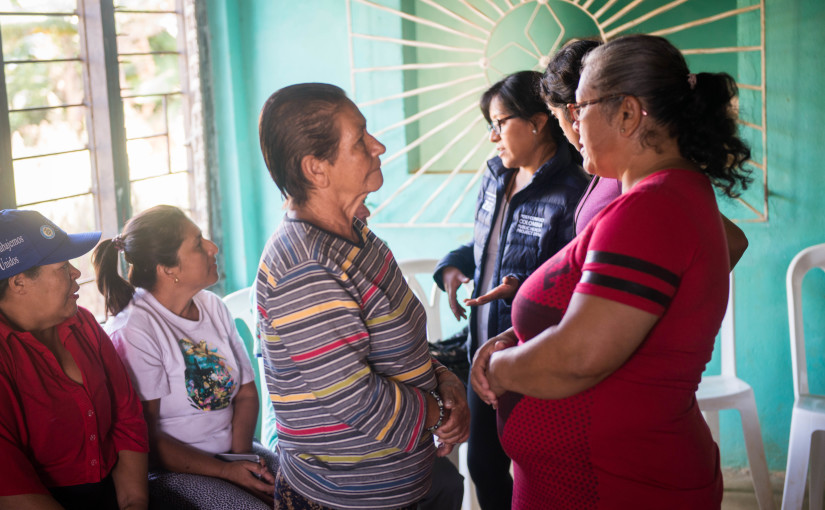Dialogue. Sharing. Understanding. Reconciliation. Trust. Friendship. Community. Change agents. Celebration. These are just some of the words our faculty and student ambassadors have used to describe their experiences during week one of our Post-Conflict Colombia Public Health project. Sharing their personal health stories, whether as clinical practitioners, public health professionals, or healthcare users, common to all these stories is that health is a universal value and human right.
At the Open Hands Initiative, we believe that a country is only as strong as its people and a healthy society is critical for growth, stability, and prosperity. For these three weeks, our health project will focus on addressing health issues affecting displaced persons and vulnerable communities – those communities often blocked from access to quality healthcare and public health decision-making. As our collaborators, the Harvard Humanitarian Initiative describe in our Post-Conflict Public Health Project Blog Series on the Huffington Post, “Through these exchanges, we are better able to understand how to begin to address the critical questions of how best to serve the health needs of populations affected by migration and displacement, what challenges these communities face, and how social development initiatives in education, transportation, urban design and economic development might impact public health for affected communities”.
For the displaced persons and vulnerable communities affected by the 50+ year conflict in Colombia, the growing disparity in access to quality healthcare in the U.S., and the refugee crisis engulfing Europe, this is a particularly timely project. The lessons learned from this exchange can help to inform decisions on how best to serve and enhance equitable access to quality healthcare for displaced and vulnerable communities across the globe. As Dr. Gregg Greenough, one of our lead faculty member describes, “Every population has a unique context and within that context are multiple factors that impact its health. The visionary work of Medellin’s leadership in understanding that its informal periurban population, traumatized by conflict and displacement, could be meaningfully integrated into civil society through progressive urban design and development and make a positive impact on its health provides valuable lessons for post-conflict displaced populations elsewhere.”
We’re excited to dive into week two of our exchange and get to know the Granizal community, a refugee settlement for displaced Colombians affected by conflict and violence. We are here to listen, understand, learn, and to serve. Follow along on our journey (Flickr, Facebook, Twitter). Learn with us as we share our stories of health, develop practical solutions to pressing health issues, and strengthen cross-cultural collaboration to advance health equity.
Read the full blog post from Harvard Humanitarian Initiative here.
Read the first blog post from our student ambassadors here.
